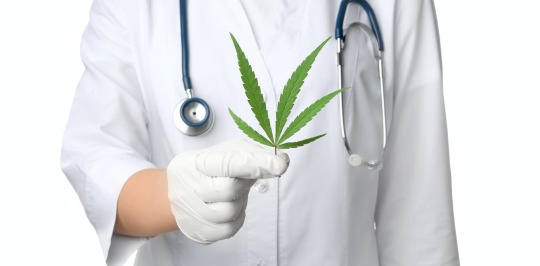#medicalcannabisweek
Explore tagged Tumblr posts
Text
Medical Cannabis Awareness Week: Exploring the Alternatives to Medical Cannabis Prescription in the UK
Medical Cannabis Awareness Week 1st - 7th November 2023

Introduction
As we commemorate Medical Cannabis Awareness Week, it is vital to shed light on the available alternatives to medical cannabis prescription in the UK. Among these alternatives, broad-spectrum CBD oil has emerged as a popular choice for many individuals seeking the therapeutic benefits of cannabis without the psychoactive effects associated with THC. This article delves into the world of broad-spectrum CBD oil and other alternatives, discussing their potential benefits and how they compare to medical cannabis.
Understanding Medical Cannabis
Medical cannabis refers to any part of the cannabis plant used to alleviate health problems. In the UK, it was legalised in 2018 for a limited number of conditions such as epilepsy, nausea and vomiting due to chemotherapy, and chronic pain. However, its use remains strictly regulated, and prescriptions are not easily obtained, leading many to seek alternatives.
Broad Spectrum CBD Oil: A Non-Psychoactive Alternative

Broad-spectrum CBD oil is a product derived from the cannabis plant that includes a range of cannabinoids, flavonoids, and terpenes, excluding THC, the compound responsible for the 'high' associated with cannabis use. It offers a 'whole-plant' experience, sometimes referred to as the 'entourage effect', where the various components work together to enhance the overall therapeutic benefits.
CBD has been touted for its potential health benefits, including reducing anxiety, improving sleep, and managing chronic pain. While research is still ongoing, preliminary studies have shown promising results. For those wary of the psychoactive effects or legal implications of medical cannabis, broad-spectrum CBD oil presents a compelling alternative.
Other Alternatives to Medical Cannabis
1. CBD Isolate
CBD isolate is the purest form of CBD, containing 99% cannabidiol. It is devoid of any other cannabinoids, terpenes, or flavonoids. This option is ideal for individuals who want to avoid THC completely or those who are sensitive to the other compounds found in cannabis.
2. Full-Spectrum CBD
Full-spectrum CBD includes all cannabinoids, terpenes, and flavonoids found in the cannabis plant, including trace amounts of THC. While the THC content is not enough to induce a 'high', it can contribute to the entourage effect, potentially enhancing the therapeutic benefits of the product. Important to note here is that Full-Spectrum CBD oils are mostly illegal in the UK as they contain more than the allowed THC content.
3. Hemp Oil
Hemp oil, derived from hemp seeds rather than the whole plant, is another alternative. Although it doesn't contain any cannabinoids, it's rich in omega fatty acids, vitamins, and minerals, making it a nutritious supplement.
Safety and Legal Considerations
While these alternatives offer potential health benefits, they should not replace traditional medical treatment without consulting a healthcare professional. It's also important to purchase these products from reputable sources to ensure quality and safety.
In terms of legality, while medical cannabis requires a prescription, CBD products are legal in the UK as long as they contain no THC. However, they are subject to regulations, and claims about their health benefits cannot be made without scientific evidence.

Conclusion
As we continue to explore the therapeutic potential of cannabis and its derivatives, it's crucial to stay informed about the various options available. Alternatives like broad-spectrum CBD oil provide an opportunity for individuals to experience potential benefits of cannabis without the psychoactive effects or stringent regulations associated with medical cannabis. However, it's always advisable to consult with a healthcare provider before starting any new supplement regimen.
During this Medical Cannabis Awareness Week, let's strive to increase our understanding, dispel misconceptions, and foster a more inclusive conversation about cannabis and its role in healthcare. Whether it's medical cannabis or its alternatives, the focus should always be on safe, effective, and patient-centered care.
#medicalcannabis#medicalcannabisweek#cannabis#health#endocannabinoidsystem#cbd#feelgreatagain#budandtender
0 notes
Text
Medical Cannabis in the UK: A Comprehensive Look for Medical Cannabis Awareness Week
Medical Cannabis Awareness Week 1st - 7th November 2023

Introduction
Medical Cannabis Awareness Week provides an excellent opportunity to discuss and understand the current situation of medical cannabis in the UK. It's a time to dispel myths, share facts, and explore the potential benefits and challenges associated with its use.
The Legal Landscape
In November 2018, the UK made a landmark decision to reschedule certain cannabis-based products for medicinal use (CBPMs). The move came after mounting evidence of the potential therapeutic benefits of cannabis for conditions such as epilepsy and multiple sclerosis. However, despite this significant legislative shift, access to medical cannabis remains challenging for many patients in the UK.
The process of obtaining medical cannabis in the UK is stringent, necessitating a prescription from a specialist doctor listed on the Specialist Register of the General Medical Council. These prescriptions can only be issued when the patient has a need that cannot be met by licensed medicines and where clear published evidence of benefit exists. Consequently, despite the legal change, the number of prescriptions for medical cannabis remained relatively low.
Furthermore, the National Institute for Health and Care Excellence (NICE), which provides national guidance and advice to improve health and social care, initially did not recommend CBPMs for several conditions due to a lack of robust clinical trial evidence. However, in August 2019, NICE updated its guidelines to endorse the use of CBPMs for treating two types of severe treatment-resistant epilepsy.

Accessibility Challenges
One of the major barriers to wider acceptance and use of medical cannabis in the UK is the limited data available regarding its safety and efficacy. Most healthcare professionals agree that more high-quality, large-scale clinical trials are necessary to establish definitive proof of the benefits and potential risks of medical cannabis.
The cost of medical cannabis products is another significant hurdle. Currently, the NHS rarely funds these prescriptions, making them an out-of-pocket expense for patients. The high cost can be prohibitive for many, leading some to turn to illicit sources.
Despite these challenges, there are signs of progress. In March 2021, the National Health Service (NHS) launched a major patient registry to collect data on the use of medical cannabis, aiming to build a solid evidence base. This registry could potentially pave the way for broader acceptance and use of medical cannabis within the UK healthcare system.
Advocacy and Activism
Moreover, several organisations are working tirelessly to improve access to medical cannabis for patients in the UK. They advocate for more research, better education for healthcare professionals about medical cannabis, and policy changes to make these products more affordable and accessible.

Public opinion is also evolving. A YouGov poll conducted in 2019 showed that 77% of people in the UK support the use of medical cannabis. This widespread public support could be instrumental in driving policy changes and promoting further research into the potential benefits of medical cannabis.
Looking Forward
Looking ahead, there is a clear need for more robust scientific evidence to inform policy and practice around medical cannabis in the UK. There is also a need for ongoing dialogue between policymakers, healthcare professionals, researchers, and patient advocacy groups to ensure that the potential benefits of medical cannabis can be realised while minimising potential harms.
Furthermore, the experiences of other countries that have legalised medical cannabis, such as Canada and Germany, may offer valuable lessons for the UK. By learning from these international examples, the UK can develop a more effective and compassionate approach to medical cannabis.
Conclusion
In conclusion, while the UK has made strides in recognizing the potential therapeutic benefits of medical cannabis, significant challenges remain. The current state of medical cannabis in the UK is one of cautious progress, marked by strict regulations, limited access, and a pressing need for more robust clinical evidence.
During this Medical Cannabis Awareness Week, it's important to continue the conversation about these issues. Increasing awareness and understanding of medical cannabis is crucial for patients, healthcare professionals, policymakers, and the public alike. By continuing to advocate for research, education, and policy reform, we can work towards a future where all those who might benefit from medical cannabis have safe, legal, and affordable access to it.
#cannabis#medicalcannabis#medicalresearch#medicalcannabisweek#health#endocannabinoidsystem#cbd#feelgreatagain#budandtender
0 notes
Text
The History of Medical Cannabis in the UK: A Journey of Recognition and Acceptance
Medical Cannabis Awareness Week 1st - 7th November 2023

The history of medical cannabis in the UK is a complex tapestry woven with periods of acceptance, prohibition, scientific discovery, and policy changes. This journey from ancient use to modern medicine has been fraught with controversy, but it also tells a story of resilience and growing understanding.
The Early Days
The use of cannabis for medicinal purposes dates back thousands of years, with some historical accounts suggesting that Queen Victoria herself used cannabis tinctures to alleviate menstrual cramps. However, these anecdotal uses were not supported by scientific evidence, and as such, the legal status of cannabis was largely undefined.
The 1920s and 1930s: Criminalisation

The 20th century brought about significant changes in the perception of cannabis. In 1928, following an international drugs conference in Geneva, cannabis was added to the Dangerous Drugs Act of 1920, making it illegal in the UK. This law effectively criminalised the use, supply, and cultivation of cannabis, including its medicinal applications.
The 1970s: Schedule 1 Classification
In the 1970s, the Misuse of Drugs Act classified cannabis as a Schedule 1 drug, indicating it had no therapeutic value and was not available for medical use. This classification made research into the potential benefits of cannabis extremely difficult, further hindering its acceptance as a medicinal substance.
The Late 1990s and Early 2000s: A New Perspective
Despite its classification, anecdotal evidence continued to suggest potential medicinal uses for cannabis. In the late 1990s and early 2000s, a wave of global interest in medical cannabis began to influence the UK's stance. During this period, the first cannabis-based medicine, Sativex, was developed and later approved in 2010 for treating spasticity caused by multiple sclerosis.
2018: A Landmark Decision
The real turning point in the history of medical cannabis in the UK came in 2018. Two high-profile cases involving children with severe epilepsy who benefited from cannabis-based treatments ignited a national debate. The cases of Alfie Dingley and Billy Caldwell prompted public outcry and led to a review of the legislation.
In November 2018, the UK government reclassified cannabis from a Schedule 1 drug to a Schedule 2 drug, acknowledging its potential therapeutic value. This change allowed doctors on the Specialist Register of the General Medical Council to prescribe cannabis-based medicinal products (CBMPs) for patients with certain conditions.

Post-2018: Challenges and Progress
Despite this landmark decision, access to medical cannabis remains a challenge for many patients in the UK. Strict prescribing guidelines, a lack of robust clinical trials, and reluctance among some healthcare professionals have limited the availability of CBMPs.
However, progress is being made. In March 2021, the National Institute for Health and Care Excellence (NICE) issued new guidelines recommending the use of CBMPs for treating severe treatment-resistant epilepsy in children. This was a significant step forward, opening up access to potentially life-changing treatment for these patients.
Furthermore, the establishment of Project Twenty21 in 2019, the largest medical cannabis patient study in Europe, reflects a growing commitment to building an evidence base for CBMPs.
Conclusion
The journey of medical cannabis in the UK has been marked by periods of prohibition and acceptance, reflecting shifts in societal attitudes, policy changes, and scientific understanding. While challenges remain in ensuring equitable access to CBMPs and furthering research, the progress made in recent years signals a hopeful future.
As we mark Medical Cannabis Awareness Week, it's important to reflect on this history, celebrate the strides made, and continue advocating for further research and understanding. Medical cannabis has the potential to transform lives, and it's crucial that we continue to explore this potential responsibly and effectively.
#cannabis#medicalcannabis#medicalresearch#medicalcannabisweek#health#endocannabinoidsystem#feelgreatagain#cbd#budandtender
0 notes